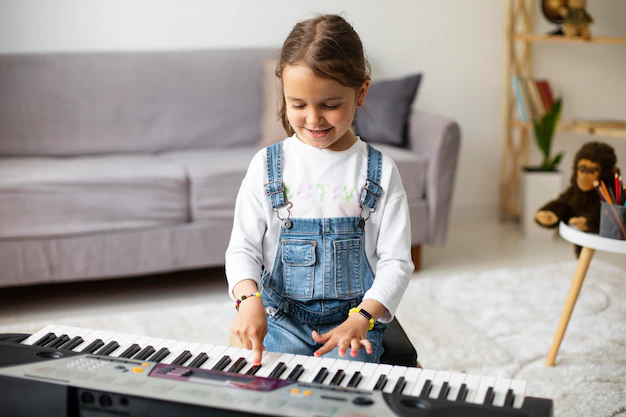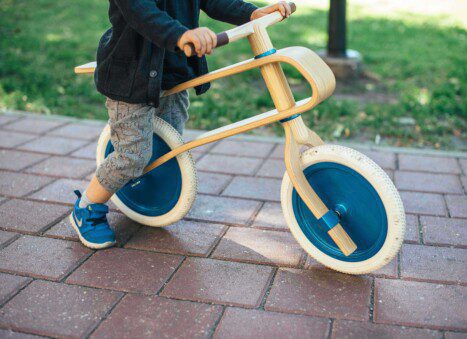
Broughton Piano: How Piano Activities Enhance Child Development
The act of a child sitting at a piano, their fingers poised over the keys, is the beginning of a journey far richer and more impactful than simply learning to play an instrument. This journey is one of personal growth, intellectual development, and emotional expression.
In the world of Broughton Pianos, this journey is deeply understood and valued. Piano learning is not just a pastime or a way to keep kids busy; it’s a comprehensive developmental tool. The piano, with its intricate keys and harmonious sounds, becomes a vessel for enhancing various aspects of a child’s growth.
From improving cognitive abilities to nurturing emotional health, the benefits of piano activities are multifaceted and profound. As we explore these benefits, it becomes evident that the piano is more than just a musical instrument – it’s a catalyst for holistic child development, playing a vital role in shaping young minds and hearts.
The Piano: A Tool for Cognitive Enhancement
The process of learning to play the piano involves a complex interplay of motor skills, memory, and cognitive functions. As children navigate through piano keys, they are not merely learning a new skill but also enhancing their brain function.
Studies have shown that children who play the piano have better spatial-temporal abilities, which are crucial for understanding mathematics and science concepts. Moreover, reading music sheets and translating them into hand movements require a high level of concentration and focus, significantly improving attention span and memory retention.
Emotional Development Through Piano Playing
Music inherently carries an emotional dimension. When children engage in piano playing, they learn to express their feelings through the language of music. This form of expression is immensely beneficial for emotional development, as it provides an outlet for children to explore and understand their emotions. The act of creating music can be therapeutic, aiding in stress reduction and promoting a sense of well-being. Furthermore, the satisfaction and pride children experience in mastering a piece or playing a song they enjoy contribute to their self-esteem and confidence.
Social Skills and Piano Learning
Learning the piano isn’t always a solitary activity. It often involves recitals, group lessons, and collaborations with other musicians. These interactions foster social skills in children. Participating in recitals and performances teaches them about preparation, resilience, and dealing with stage fright. Group lessons and collaborations encourage teamwork, patience, and respect for others’ abilities and learning paces. Additionally, sharing their music with family and friends helps children develop communication skills and a sense of community.
Discipline and Responsibility through Regular Practice

One of the key aspects of learning the piano is regular practice. This instills a sense of discipline and responsibility in children. Setting aside time for practice, adhering to a routine, and working towards goals are valuable life skills that extend beyond music learning. These skills are particularly beneficial in academic settings, where discipline and time management are essential for success.
Creativity and Imagination in Piano Playing
The piano is not just an instrument for reproducing music; it’s also a tool for creativity. Children learning the piano are encouraged to improvise and compose, which sparks their imagination and creative thinking. This aspect of piano learning is particularly important in today’s world, where innovation and creative problem-solving are highly valued skills.
Physical Benefits of Playing the Piano
Playing the piano also offers physical benefits. It improves hand-eye coordination and fine motor skills. The act of pressing the keys, maintaining proper hand position, and coordinating both hands simultaneously enhances dexterity and agility. For young children, these physical skills are crucial as they navigate through other aspects of their development.
The Role of Parents and Educators
The role of parents and educators in supporting children in piano learning is vital. Encouragement, patience, and providing a conducive environment for practice are essential for sustaining the child’s interest and progress. Additionally, choosing the right piano and instructor plays a significant role in the child’s learning experience.
Broughton Pianos: Fostering Child Development Through Music
At Broughton Pianos, the focus extends well beyond the realm of mere retail. It’s about creating a nurturing environment for child development through the power of music. Understanding the unique needs of each learner, Broughton Pianos offers a diverse range of pianos, ensuring that every child, from the novice to the more advanced, finds an instrument that resonates with their stage of learning. This commitment to providing quality instruments is matched by a dedication to exceptional service, ensuring that each interaction a child has with their piano is not only educational but also deeply fulfilling.
Furthermore, Broughton Pianos believes in the transformative power of music in a child’s life. By providing instruments that cater to various skill levels and preferences, they aim to instill a lifelong love for music and learning. This approach makes the musical journey with Broughton Pianos not just a transaction, but a pivotal chapter in a child’s developmental story, where each note played contributes to their growth, confidence, and creativity.
Conclusion: The Symphony of Development
The role of piano activities in child development is akin to a symphony – a harmonious blend of various developmental aspects coming together to create a masterpiece. Each key of the piano represents a different attribute: cognitive growth, emotional maturity, social skills, discipline, creativity, and physical development.
As a child engages with the piano, these attributes interweave, enhancing their overall development. With Broughton Pianos, this symphony reaches new heights, as they provide not just instruments, but a gateway to a richer, more fulfilling developmental experience.
The journey of learning the piano is an investment in a child’s future, equipping them with skills and qualities that transcend music. It teaches patience, instills confidence, and sparks creativity, preparing children for various challenges and opportunities in life. Ultimately, piano activities do much more than just keep kids busy; they lay down the notes for a lifetime of learning, expression, and personal growth.
By encouraging children to embark on this musical journey, we open doors to a world of possibilities, nurturing well-rounded, confident, and creative individuals who are ready to compose their own life’s symphony.
Read Also:
Tages:
Already have an account?
Sign In
Create your account
User added successfully. Log in








